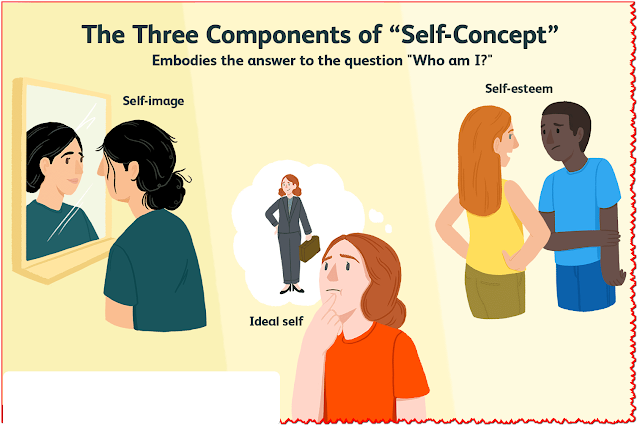self important person
How do you describe a self-important person
What is a word for self-important?
Understanding the Essence of Being Self-Important: A Comprehensive Exploration In this enlightening article, we delve into the concept of self-importance, exploring its meaning, implications, and impact on individuals and society. Gain valuable insights into defining self-importance and discover the keys to striking a healthy balance.
Introduction
Have you ever come across someone who exudes an air of self-importance? Perhaps you've caught yourself engaging in self-important behavior from time to time. Understanding the notion of self-importance is crucial for comprehending human behavior and interactions. In this article, we embark on a journey to define self-importance and shed light on its various facets. From examining its implications on personal relationships to its influence on societal dynamics, we aim to provide valuable insights that will help us better navigate the complexities of human nature.
Define Self-Important
Self-importance, as the term suggests, refers to an inflated sense of one's own significance or value. It is characterized by an exaggerated belief in one's abilities, accomplishments, or importance in comparison to others. When individuals adopt a self-important mindset, they often seek validation, recognition, and admiration from those around them. This desire for external validation becomes a driving force behind their behavior, shaping their interactions with others and influencing their decision-making processes.
The Paradox of Self-Importance: A Double-Edged Sword
Self-importance is a concept that encompasses both positive and negative aspects. While a healthy level of self-importance can fuel motivation and drive individuals toward achieving their goals, an excessive sense of self-importance can lead to detrimental consequences. Let's explore this paradox in greater detail.
The Benefits of Healthy Self-Importance
A moderate level of self-importance can serve as a catalyst for personal growth and development. When individuals believe in their own capabilities and worth, they are more likely to take risks, seize opportunities, and strive for success. Healthy self-importance fosters self-confidence and resilience, allowing individuals to overcome challenges and obstacles with determination and perseverance. Furthermore, it encourages individuals to prioritize self-care, assert their needs, and set boundaries in relationships, leading to healthier and more fulfilling connections.
The Pitfalls of Excessive Self-Importance
 |
| Define Self-Important |
On the other hand, excessive self-importance can give rise to a range of negative behaviors and outcomes. When individuals become consumed by their own perceived importance, they may develop a sense of entitlement, disregard the feelings and needs of others, and engage in manipulative or exploitative behavior. Excessive self-importance can hinder personal growth by stifling self-awareness and inhibiting the ability to learn from mistakes or accept constructive criticism. Additionally, it can strain relationships, as constant self-centeredness and a lack of empathy create a disconnect between individuals, leading to conflicts and misunderstandings.
FAQs About Self-Importance
### FAQ 1: Is self-importance the same as self-confidence?
No, self-importance and self-confidence are distinct concepts. While self-confidence reflects a healthy belief in one's own abilities, self-importance denotes an inflated sense of one's own importance or superiority compared to others. Self-confidence is rooted in self-assurance and a positive self-image, whereas self-importance is characterized by an excessive need for external validation and recognition.
FAQ 2: Can self-importance be a defense mechanism?
Yes, self-importance can sometimes act as a defense mechanism, particularly in individuals who harbor deep-seated insecurities or feelings of inadequacy. By projecting an image of exaggerated importance, individuals attempt to shield themselves from criticism, rejection, or feelings of inferiority. However, relying on self-importance as a defense mechanism can hinder personal growth and authentic connections with others.
Certainly! Here's the continuation of the article:
FAQ 3: How does self-importance affect relationships?
Self-importance can have a profound impact on relationships. When individuals prioritize their own needs, desires, and opinions above others', it creates an imbalance and hampers effective communication. Relationships thrive on mutual respect, empathy, and collaboration, qualities that can be compromised by excessive self-importance. It can lead to conflicts, power struggles, and a lack of understanding between individuals. Nurturing healthy relationships requires individuals to recognize and appreciate the importance of others, fostering a sense of equality and empathy.
FAQ 4: Can self-importance be unlearned or reduced?
Yes, self-importance can be unlearned or reduced through self-reflection, introspection, and personal growth. Developing self-awareness is the first step towards recognizing any self-important tendencies. Engaging in practices such as mindfulness, therapy, or seeking feedback from trusted individuals can help individuals gain a more realistic perspective of themselves and their interactions with others. Cultivating humility, empathy, and genuine curiosity about others' experiences can also aid in diminishing self-importance and fostering healthier relationships.
FAQ 5: Is there a difference between self-importance and narcissism?
Yes, there is a distinction between self-importance and narcissism. While self-importance relates to an exaggerated belief in one's own significance or value, narcissism encompasses a broader set of traits and behaviors. Narcissism is characterized by a grandiose sense of self, a constant need for admiration, a lack of empathy, and a tendency to exploit or manipulate others. While self-importance can be present in narcissistic individuals, not all individuals with self-importance exhibit narcissistic tendencies.
FAQ 6: How can we strike a balance between self-importance and humility?
Striking a balance between self-importance and humility is essential for personal growth and healthy relationships. Embracing humility involves acknowledging that one's importance is not superior to others and recognizing the value and worth of others' perspectives and contributions. It requires openness to learning from others, accepting feedback, and fostering genuine connections. By integrating self-confidence with humility, individuals can cultivate a healthy self-importance that respects the dignity and worth of both themselves and others.
Conclusion
In conclusion, self-importance encompasses the concept of an inflated sense of one's own significance or value. While healthy self-importance can fuel personal growth and confidence, excessive self-importance can lead to detrimental consequences, such as strained relationships and a lack of empathy. Recognizing the importance of striking a balance between self-importance and humility is crucial for personal development and fostering meaningful connections with others. By embracing self-awareness, practicing empathy, and cultivating humility, individuals can navigate the complexities of self-importance in a way that promotes personal growth, authentic relationships, and overall well-being.

